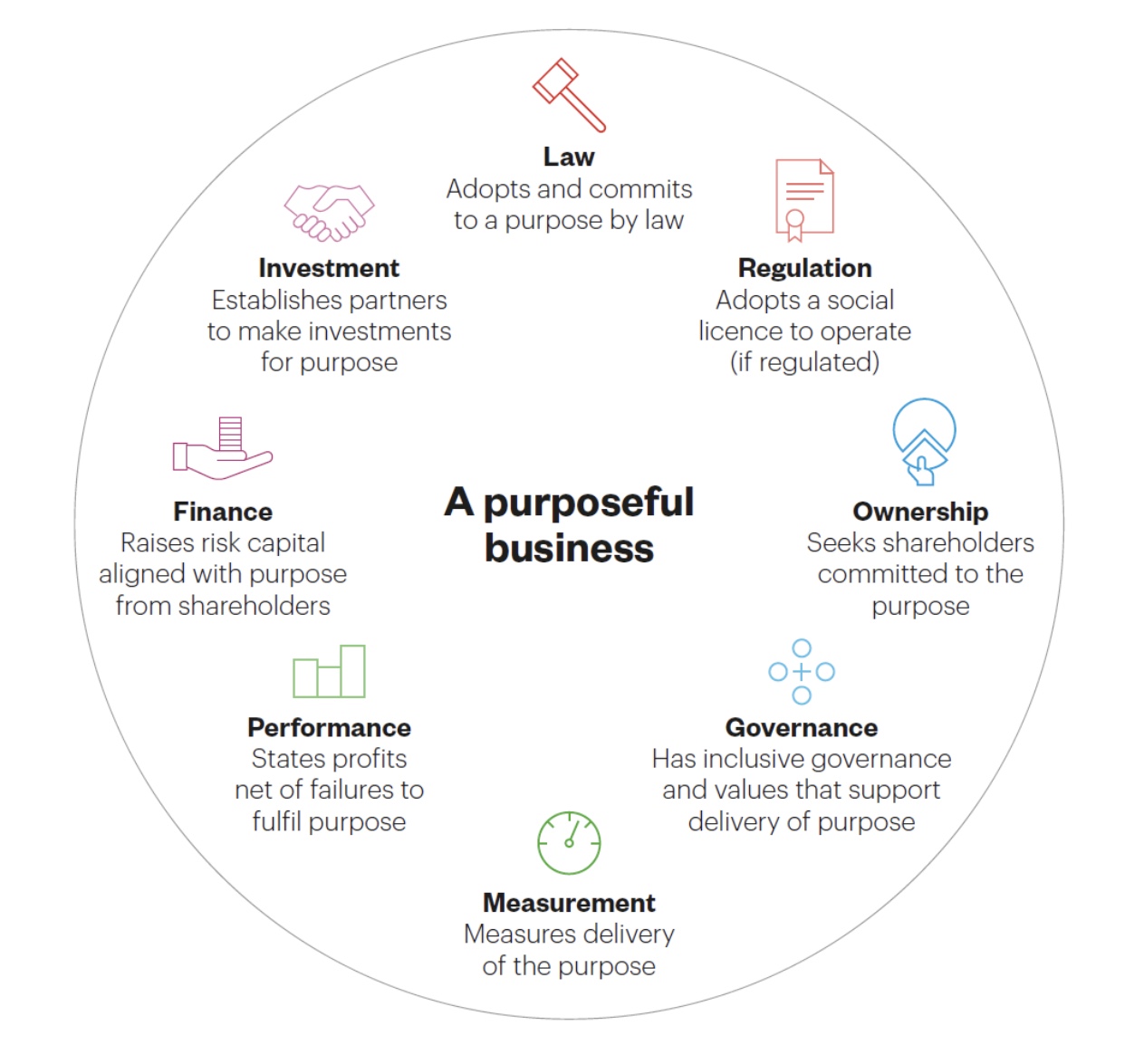FT editor calls for an end to “unchained capitalism”
“We cannot allow unchained capitalism to run on in the hope that it will leave behind scraps for the rest of society. The time of trickle-down economics is over.”
Lionel Barber, editor of the Financial Times, on Wednesday called for reform of the current economic system, as the British Academy published the second report in its Future of the Corporation programme.
Speakers at the event to launch the publication, held at The Guildhall in London, were unanimous that the scale of the problems that the world currently faced meant that businesses were at a unique point in their history and needed to change rapidly.
“There’s a fierce urgency... This is really a crisis point,” said Lady Lynn Forester de Rothschild, CEO of the Coalition for Inclusive Capitalism.
The solution, according to Professor Colin Mayer, the academic lead of the programme, was a reconception of the role of business around the notion of purpose.
Principles for Purposeful Business: an Agenda for the Future of the Corporation in the 2020s sets out, according to the British Academy, how to deliver a “framework for the future of the corporation” which the authors identified a year ago in the first publication. They argue that a “purposeful business” would organise itself on all levels according to its purpose and they propose eight principles encompassing corporate law, regulation, governance, ownership, measurement, performance, finance and investment.

“It’s time for all business leaders to raise their eyes from the bottom line and look around them,” said Barber. “The current context demands action, if only for self-preservation.”
“Fortunately," he added, “the prescription is hiding in plain sight… we used to call it plain good business.”
That means, he said, treating workers suppliers, customers, the environment, and communities not as obstacles to profit, but as stakeholders whose interests needed to be considered next to the bottom line.
Barber is currently the UK’s longest serving national newspaper editor, although he is stepping down in the new year. Earlier this year, the Financial Times launched a campaign called The New Agenda, calling for capitalism to be “reset”.
Pointing to history, Barber cited Theodore Roosevelt’s “Square Deal” speech in 1905 where the US president said the “true believer in capitalism” should welcome every effort to secure fair dealing by capital toward the public and toward the employee.
Another speaker, the economist and author Professor John Kay, highlighted a UK example: in the 1980s, British chemical company ICI’s annual report emphasised the company’s purpose in terms of the “responsible application of chemistry and related sciences to business”. By the 1990s, however, the focus of the annual report was solely on creating shareholder value. (The company was taken over in 2008.)
“Reforming the corporation is not about tacking on a laundry list of nice-to-have initiatives,” said Barber. “The prescription is a fundamental shift in how companies think about their objectives.”
Responding on Twitter to the publication launch, which was announced on BBC Radio 4’s Today programme on Wednesday morning, Peter Holbrook, CEO of Social Enterprise UK, highlighted the lack of acknowledgement of social enterprise in the debate. “So we hear we need urgent reform of capitalism on @BBCr4today with @BritishAcademy_ . Yet no reference to the UK’s 100,000 #socent community, worth £60bn that has social purpose locked in. One of the fastest growing parts of our economy. C’mon keep up!”
|
Anglian Water UK utility company Anglian Water changed its articles of association in early 2019 to emphasise its purpose in terms of benefit for shareholders, long-term value for its customers, region and communities and positive outcomes for the environment and society. This case was discussed during the British Academy launch event as an example of the direction in which corporations should be moving. Anglian Water stipulates its directors’ duties as promoting the purpose of the company and carrying out operations in accordance with its statement of responsible business principles. This puts a legal requirement on its board of directors to take account of the impact of the company’s decisions on society and the environment, as well as their financial implications. Alex Plant, the company’s director of regulation, said: “This doesn’t remove the profit motive, but puts it alongside.” He added that other utility companies, including Welsh Water and Severn Trent Water were also taking steps in a similar direction. |
Read Lionel Barber’s entire speech on the Financial Times website.
Thanks for reading our stories. As somebody working in the impact economy, you'll know that producing quality work doesn't come free. We rely on paid subscriptions and partnerships to sustain our purpose-led journalism – so if you think it's worth having an independent, specialist media platform to share your news, insight and debate across the globe, please consider subscribing. You'll also be buying social: Pioneers Post is a social enterprise itself, reinvesting all profits to help you do good business, better.


